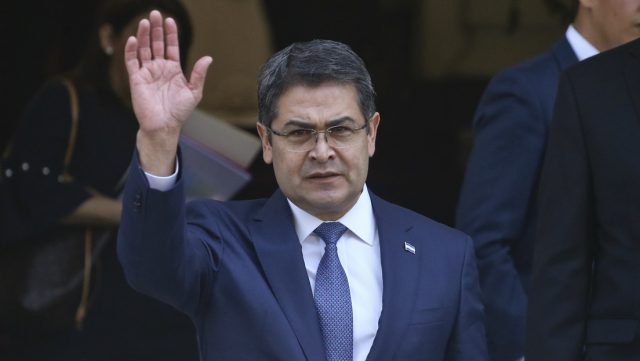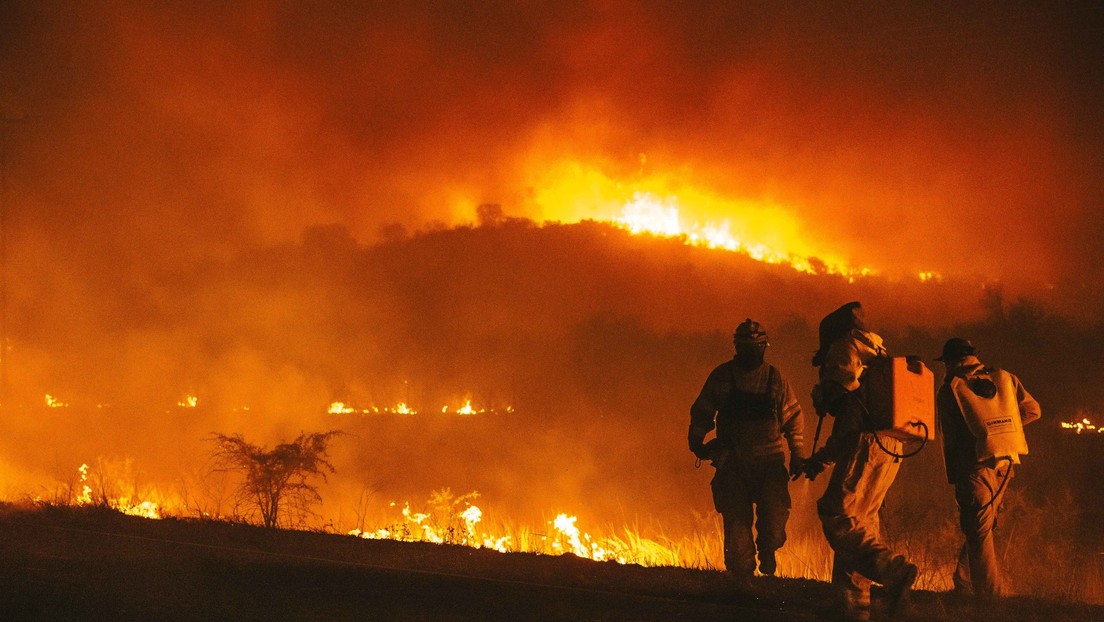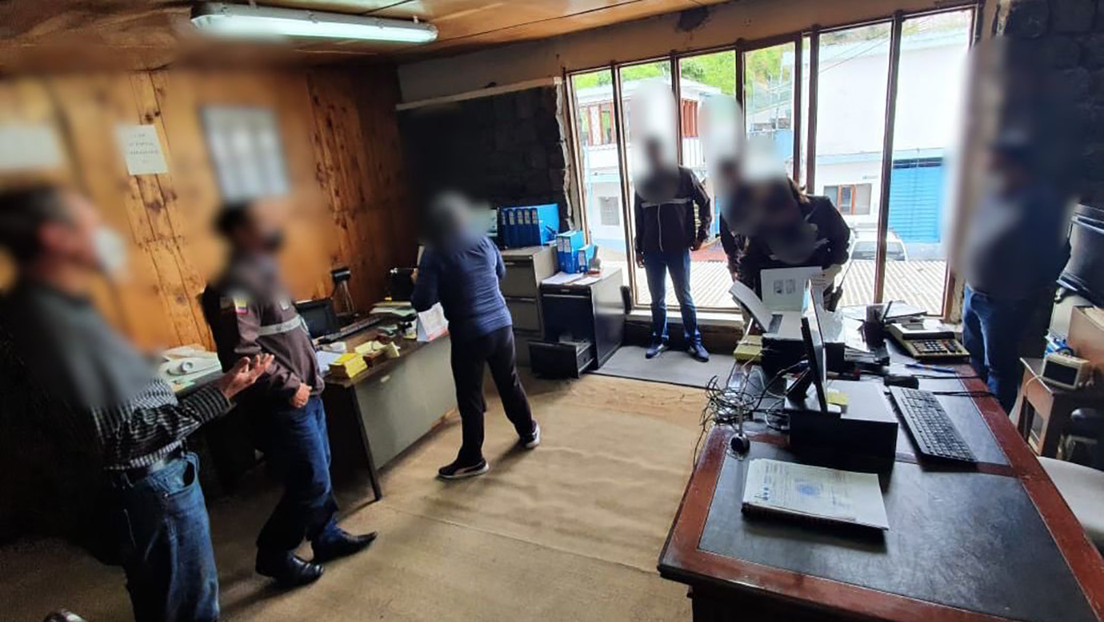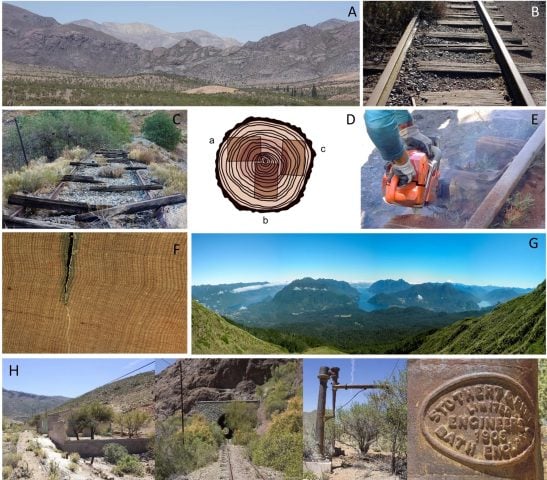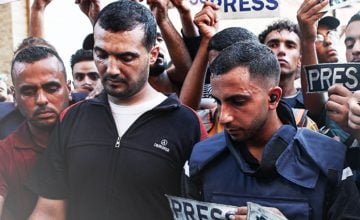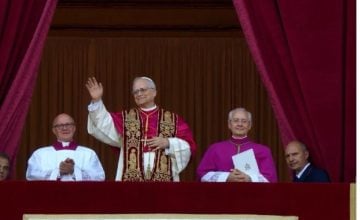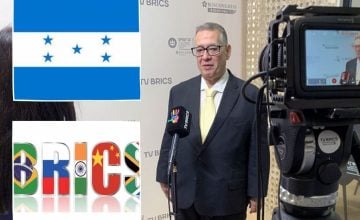From love to hate, eight years passed. The smiling image of Barack Obama when he shook his hand or the compliments he received from Donald Trump are just memories for former Honduran president Juan Orlando Hernández, who turned himself in to local authorities for possible extradition to the United States on charges of drug trafficking
Hernandez is experiencing this difficult moment weeks after removing the presidential sash from Honduras, a country that he governed for two consecutive periods, despite the allegations of electoral fraud that were conveniently minimized at the time by Washington, explains journalist Nazareth Balbás for RT.
«It’s not an easy time, I wish this on anyone», he was heard saying in an audio broadcast Tuesday morning on his social networks. In that brief speech, with a black screen, he said that he was willing to go before the judge appointed by the Supreme Court of Justice (SCJ) to hear his case.
Although the process is just beginning, the current point is not a surprise to anyone. The twilight of the relationship with the White House began at least a couple of years ago, when the label «narco-State» began to accompany the name of Honduras in Washington, but not because of the recurrent denunciations of the left in that country, but because of the testimonies of ‘ex capos’ before a New York court.
Hernández, the politician of continuity
The race for the presidency of Juan Orlando Hernández –or JOH, as he is often called by the acronym of his name– began as leader of the Honduran Congress during the mandate of Porfirio Lobo (2010-2014), with whom he shared militancy in the conservative Partido Nacional of Honduras.
That period, marked by the aftermath of the coup against Manuel Zelaya in 2009 and the de facto government of Roberto Micheletti, plunged Honduras into international isolation, as most countries in the hemisphere demanded the return to power of the ousted president. However, Lobo was able to continue with the reins of the country due to key support that came directly from the White House.
Four years later, Lobo’s successor in office was Hernández (2014-2018). Upon learning of his victory by the Supreme Electoral Tribunal, whose validity was questioned by Xiomara Castro as a candidate for the newly founded Libre party, the US released a statement to give a boost to the conservative’s management.
«We commend the Government of Honduras for ensuring that the electoral process was generally transparent, peaceful, and reflected the will of the Honduran people», said then-Secretary of State John Kerry.
The blessing from the State Department was followed by pats on the shoulder from Barack Obama, who praised Hernández’s capacity for «dialogue» and his government’s «achievements», such as the signing of an anti-corruption agreement with the Organization of American States ( OAS); the increase in the budget for the community police; the «social assistance for more than 450,000 families» with State programs and the «effective control of expenses».
The words of mutual admiration were also from Hernández towards the tenant of the White House at that time. In 2016, for example, he claimed that Obama was «leaving a legacy of a different relationship between Central America and the US», and claimed that his US counterpart had taken ideas that he proposed in the Alliance Plan for Prosperity, with the purpose of sending it to Congress.
Hernández’s permanence in power, in fact, was the guarantee of «continuity» that existed during the previous administration, an issue that was more than convenient for Washington. In fact, cables revealed by WikiLeaks confirmed that Lobo consulted almost all of his decisions with the US embassy in Tegucigalpa.
Among the most controversial – for example – was Lobo’s attempt to appoint the general who carried out the coup against Zelaya, Romeo Vásquez Velásquez, as defense minister. The US representative in Honduras, Hugo Llorens, contained that designation and advised the president to make a different move so as not to generate controversy in the international community. The dynamic would have been the same in other affairs of State.
Hernández, a “fantastic” man
Despite Hernández’s promises to improve the living conditions of Hondurans, the truth is that at the end of his first term, more than 65% of the country lived in poverty and social indicators were more alarming every day. However, he ran for his re-election.
In that election, called on November 26, 2017, Hernández faced Salvador Nasralla, who ran in alliance with Xiomara Castro as presidential appointee. Despite the fact that the preliminary counts put the left duo in the lead, the scrutiny stopped and, only when the broadcast resumed, did JOH appear as the winner.
The indications of fraud were of such magnitude that even the OAS discredited the electoral process and recommended repeating the call to the polls. However, almost a month later, now with Donald Trump in the White House, the US returned to the old move of recognizing Hernández as president-elect, qualifying the unusual support with a call to review «the irregularities» and a » strong national dialogue».
Hernández assumed his second term in 2018 and, in September of that same year, the first migrant caravan was formed, made up of more than 1,000 Hondurans who undertook the journey to the United States with the hope of fleeing structural violence, poverty, inequality and lack of opportunities in their own country.
The situation was repeated in the nations of the so-called Northern Triangle, which inaugurated a new phase of pressure from the White House. In his hostile rhetoric, Trump threatened to cut off aid to those nations if they didn’t stop those migrations.
The result of this policy of coercion was that Honduras, El Salvador and Guatemala signed the Asylum Cooperation Agreement (ACA), a pact that allowed the US to deport migrants to those nations. At that time, a plethoric Trump addressed these words to Hernández: «I want to congratulate you and your country, and I want to tell you that you have done a fantastic job. My people that have been working with you also keep saying to us how much you love your country».
The age of suspicion
Beyond the public statements, the deterioration of the Honduran president’s reputation in Washington had begun at least two years ago due to the accusations of a drug trafficker against his brother, Antonio ‘Tony’ Hernández, who was also a deputy.
In 2017, a drug lord claimed before a New York court that «Tony» Hernández had promised him help to collect a debt from the Government with a front company. That statement was the first thread that the Justice system pulled until, last year, a federal judge sentenced the brother of the Honduran president, currently imprisoned in US territory, to life imprisonment for drug trafficking crimes.
This judicial process undermined Hernández’s credibility to such an extent that, still in the Trump era, the president of the US House of Representatives, Nancy Pelosi, together with a bipartisan delegation, refused to attend a meeting with the Honduran president. The president repeatedly assured that he had nothing to do with the irregularities perpetrated by his brother, but the accusations finally reached him.
Last year, the testimony of Devis Leonel Rivera Maradiaga –former leader of the ‘Los Cáchiros’ cartel– as a witness in a drug trafficking trial in a New York court, directly pointed to the Honduran president as the recipient of bribes to avoid his capture and subsequent extradition to the US. His words were also supported by the capo Geovanny Fuentes Ramírez, recently sentenced to life in the US.
The tenor of the accusations grew to such an extent that, in September 2021, during his appearance at the United Nations General Assembly, Hernández alluded to the issue and raised his defense against what he called «false testimonies».
With the arrival of Joe Biden, very little changed. Immediately, the Democratic president suspended the ACA, which, in practice, had only been applied by Trump in Guatemala. The most significant sign that there would be no turning back occurred when Vice President Kamala Harris’ attendance at Xiomara Castro’s inauguration did not even include a photo with the outgoing president.
In the stadium, where Castro’s inauguration took place, a chant was heard forcefully from the stands and seemed directed at Harris: «Take JOH, take JOH!»
Earlier this month, Secretary of State Antony Blinken announced that Washington was not only revoking Hernández’s visa – already out of power – but also issuing a ban on entering US territory «due to corrupt acts». «No one is above the law», he wrote.
A little cup of tea
The time of the support of the Democratic governments for the right wing sector in Honduras to boycott the return of the left, or Trump’s urgency to show results on immigration with the coercion on Central America, what remains now for Biden is to take action against a politician who has just left power.
The overwhelming response at the polls in Honduras not only demonstrated Castro’s support, but also closed the cycle of political conflict that had been open since 2009 with the coup against Zelaya, which was backed by Washington despite its public statements.
But the truth is that neither the recurring complaints of electoral fraud, nor the terrible living conditions of Hondurans, much less the structural causes of violence in that Central American country during the eight years of Hernández’s government, promoted a change in the view of Washington. The turning point was the word of the ex-capos prosecuted in a New York court.
Now, the US judicial authorities accuse Hernández of participating in a «violent drug trafficking conspiracy to receive shipments of multiple tons of cocaine sent to Honduras» from various countries, «by air and sea routes».
«The conspiracy transported more than approximately 500,000 kilograms of cocaine through Honduras to the United States», says the indictment, which indicates that Hernández would have received «millions of dollars in bribes and profits» from multiple drug trafficking organizations in his country, Mexico and from other places.
On Tuesday afternoon, Hernández was taken from his house wearing a bulletproof vest and handcuffed on hands and feet, to be taken to the offices of the Special Forces of the National Police. The timid image differs from that man who, a few years ago, diagnosed Zelaya with «nostalgia for power» and prescribed «a little cup of tea» for the politician so that he could deal with the aftermath of his overthrow.
